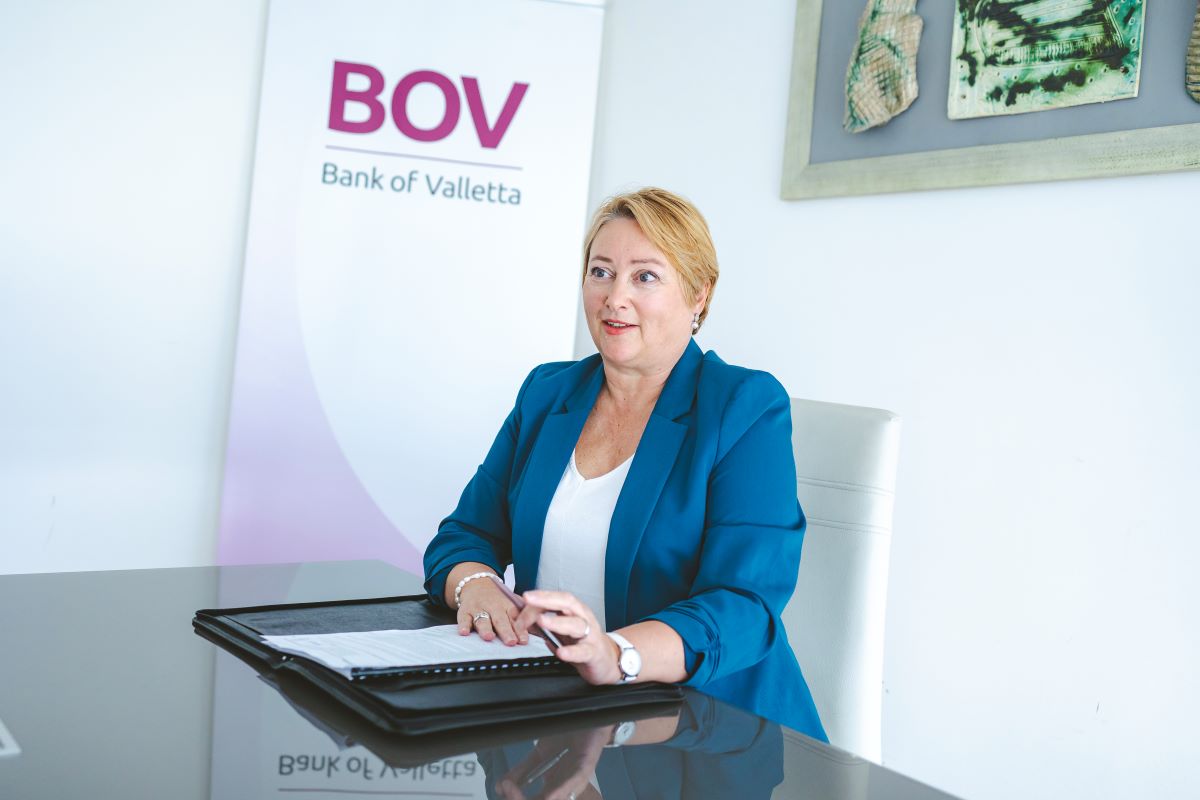As a tight labour market and substantial cost of living adjustments push salaries upwards, businesses might rightly wonder what benefits the introduction of an occupational pension scheme may hold. But, as BOV head of Bancassurance, Tonia Parascandalo points out, “once you crunch the numbers, it pays off”.
Speaking to BusinessNow.mt about the MAPFRE MSV Life WorkSave pension scheme, for which BOV is a tied intermediary, Ms Parascandalo runs through the benefits for employers.
“Under current legislation, employers get a 25 percent tax credit on their contributions to every employee, subject to a maximum tax credit of €750 per employee. Moreover, contributions paid on behalf of an employee are tax deductible up to €2,000 per annum.
“So it’s not quite as it seems on paper. It is the company’s net expense which is relevant and when you crunch the figures, it’s almost too good to be true. The bottom line is that at the end of the day, employers only pay 40c on the euro for their contributions, making it a highly cost effective way to improve employees’ total remuneration package.”
But why are private pensions so important in the first place?
“There is the widespread misconception that the state pension amounts to two-thirds of one’s final salary,” says Ms Parascandalo. “What many fail to realise is that currently this only holds true for those on relatively low incomes. For those on incomes above €30,000, the drop is quite stark. This means that the higher one’s income, the larger the gap between their salary and the state pension they will receive. And for many, this realisation can be shocking.”
As it stands, the state pension serves to prevent poverty and maintain a basic quality of life, but it is far from enough to be able to live life to the full. “That’s why the bank feels it has a duty to promote the scheme but at the same time educate people about their future need,” she says.
And for employers, the main takeaway is that higher paid workers could be more appreciative of such a measure once they find out just how big the difference in their income before and after retirement is.
A major reason for many people’s lack of planning for retirement is that it simply falls quite low in the list of priorities, often until it is too late to make any investment worth the while. Buying a car, a first home, paying for schooling and extracurricular activities for offspring – all these tend to be more urgent than thinking about retirement.
“What many people, especially empty-nesters in their fifties, come to realise is that with retirement around the corner, their savings are simply not enough to maintain the same standard of living they would have become accustomed to,” muses Ms Parascandalo.
Thinking ahead, in this case, pays off handsomely, and even setting a little aside each month from a relatively young age can make a big difference once one’s working life is behind them.
Under current legislation, an employee would get a tax credit of 25 per cent on their own contributions, up to a maximum of €3,000 per annum. That means that an employee putting aside €250 a month would receive a tax credit of €750 the following year.
This is separate to the tax credit on personal private pension plans – a person can max out their contributions in both the personal and occupation pension schemes to double the credit.
Ms Parascandalo notes that companies are cottoning on to the attraction of such schemes and are even using them in their recruitment efforts: “We are now seeing adverts for vacancies that list the provision of a workplace pension plan as an additional perk. Employers are realising that offering this to their employees signals their caring approach, and that increases loyalty and staff retention. When people feel that their employer cares about them, they reflect this back in their day-to-day work and in their future plans.”
Occupational pension schemes can thus be understood as “a tool in the arsenal to help improve employee retention,” a factor that has become ever more important as suitable employees become harder to find. “In a fiercely competitive labour market, companies offering such perks can stand out.”
The flexibility of the WorkSave Pension Scheme is another bonus. Employers can opt to limit their involvement to its establishment, leaving it up to employees to join. The minimum monthly contribution is €100, but whether this is split 50/50 between the employee and the employer, 75/25, or 100/0 is entirely up to the client.
“It’s not just a product that you get off the shelf,” says Ms Parascandalo. “When we talk with employers, usually HR managers and CFOs, we offer a bespoke plan to meet their needs and budget.”
The WorkSave pension plan can be set up for as few as five employees, with no maximum limit, making it suitable for all business sizes, and allowing the possibility of only introducing it for a particular tier of staff.
In fact, for employers without the annual budget to contribute for all employees, starting with the top management is a common route. “It’s not an all or nothing deal – that’s the beauty of flexibility.”
Delving further into the workings of the scheme, Ms Parascandalo explains that the initial contract would run for five years, after which the company can decide whether to renew it or not.

“If the scheme is not renewed, the employer would of course no longer make contributions, but the employee is always free to take a contribution break or continue investing by transferring the account into a Personal Pension Plan,” she says.
For employers, the scheme is easy to set up and just as easy to operate, seamlessly integrating into the payroll process. There is no installation and no special software
Employees would select their own investment strategy, choosing from a list of over 50 funds, including ones managed according to the estimated date of retirement, with an aggressive investment in equities for those whose retirement is decades away shifting to one more focused on wealth preservation as retirement approaches.
Upon retirement, the employee would be able to receive 30 per cent of the total amount saved as a tax-free lump sum, with the rest being issued as a monthly income that would top up the state pension.
With BOV having introduced an occupational pension scheme for its own employees in 2022, Ms Parascandalo shares that the response from staff was “very encouraging”, with many opting to top up or increase their monthly contributions.
She concludes with a reference to the words of famed entrepreneur Richard Branson: “Take care of your employees, and they will take care of your business. And what better way to show genuine interest in your employees than by contributing to their future?”
Bank of Valletta p.l.c. of 58, Triq San Żakkarija, Il-Belt Valletta VLT 1130, is an enrolled Tied Insurance Intermediary under the Insurance Distribution Act, Cap. 487 of the Laws of Malta for MAPFRE MSV Life p.l.c. (MMSV). MMSV is authorised under the Insurance Business Act, Cap. 403 of the Laws of Malta. Both entities are regulated by the Malta Financial Services Authority. The product is manufactured by MAPFRE MSV Life p.l.c. and distributed by Bank of Valletta p.l.c.
The value of your investment may go down as well as up and you may get back less than you originally invested. Past performance is not a reliable indicator of current or future results. Changes in the rate of exchange of currencies may also affect the value of investments. Tax treatment depends on the individual circumstances. Tax legislation and the amount of rebate may change in the future. For further information or a copy of the WorkSave Pensions Key Features Document, please feel free to contact us by email on [email protected]. If you stop paying your plan before the chosen retirement date, you may not get back as much as you invested. If you invest in this product you will not have access to your money before the retirement date.
Featured Image:
Images by Inigo Taylor
WATCH: PM appeals for calm amid bombshell Vitals inquiry charges being filed in court
He appeared to back arguments made by former PM Joseph Muscat earlier today
Attorney General files criminal charges against former Prime Minister Joseph Muscat
The charges come following the conclusion of a long-running magisterial inquiry
US lifts sanctions on Malta-based aviation company with ties to Russian oligarch
Emperor Aviation was sanctioned in 2022 for coordinating travel for Suleiman Kerimov






